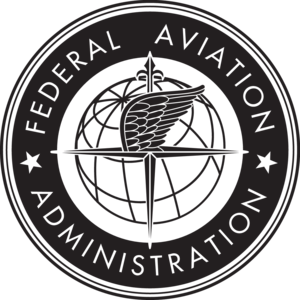
Prior to the recent enactment of Part 107, commercial drone operations were prohibited under FAA Regulation, commonly referred to as “Section 333,” and the only way to fly legally was to apply for a Section 333 Exemption. This was an onerous – and sometimes expensive – process that required the drone operator to hold a pilot’s license. Even with a pilot’s license, exemptions, especially in the beginning, took months: forcing many drone operators underground, as they realized that they couldn’t begin to meet the requirements to operate legally.
The “Add On” Effect
If drone operators had been opening new “drone businesses” without licensing, it’s possible that someone might have taken notice. But most commercial drone operators weren’t opening a new business, they were simply adding drone services to their product offering – and not mentioning it very loudly. Photographers and videographers who already had a client base simply added aerial imagery to their portfolios; customers became accustomed to being able to select drone footage as an option. As long as the drone operators stayed within the basic confines of the law – or at least away from law enforcement – nobody really asked.
Nobody interviewed for this article wanted to be named – some because they plan on becoming licensed and didn’t want to tarnish their records, and some who simply do not intend to worry about it. “I never knew you needed a license,” said one real estate customer DRONELIFE spoke with. “I’ve had a photographer take drone shots before, and I never asked. I probably still won’t!”
Using Your Own Drone – for Your Own Business
Another vast black market for drone operators is those who use a drone in the course of their own daily operations. One small town provider of home inspection services seemed amazed when DRONELIFE asked about licensing. “We just use it for our own business,” he said. “Everyone does. Customers expect it. You need a drone for the roof inspections – you can’t get insurance if you say you’re going up yourself to do it manually.” The home inspector did not intend to pursue commercial licensing.
There was a similar reaction from the manager of a small construction company who uses a drone on every site to take aerial images of the site before and during construction. “It’s our drone,” he said. “We don’t have a drone business, we just take pictures of our own sites.”
This may, on the surface, seem reasonable – it may even seem like a gray area. But the FAA’s interpretation of the Special Rule for Model Aircraft is clear: if you fly a drone to help your business, you’re flying a drone for commercial purposes. “Likewise, flights that are in furtherance of a business, or incidental to a person’s business, would not be a hobby or recreation flight….” says the FAA interpretation. “Although they are not commercial operations conducted for compensation or hire, such operations do not qualify as a hobby or recreation flight because of the nexus between the operator’s business and the operation of the aircraft.”
Education or Enforcement?
It would seem that much of the problem is a question of education. None of the people that DRONELIFE interviewed, all of whom had used or hired commercial drones, knew about the enactment of Part 107, or admitted to knowing that their drone flights fell into the category of commercial operations. While the commercial drone industry has been following the regulations closely for years, the average industry just trying to get the job done hasn’t – and it isn’t common knowledge yet, despite preliminary efforts from the FAA and manufacturers.
It may take some enforcement action to bring the issue to the surface. When the FAA proposed a fine of nearly $2 million on SkyPan International last year it was punishing a company with a Section 333 Exemption; perhaps it would be more useful to focus on enforcing the licensing laws to protect those operators who are working within a legal framework.
However it is addressed, the black market in drones causes a significant problem for licensed operators. Not only do unlicensed operators skew the market unfairly, they could cause safety issues. Commercial operators without any training, who are unaware even that a licensing program exists, probably also don’t realize that they should stay out of certain airspace and avoid flight over people.
Miriam McNabb is the Editor-in-Chief of DRONELIFE and CEO of JobForDrones, a professional drone services marketplace, and a fascinated observer of the emerging drone industry and the regulatory environment for drones. Miriam has penned over 3,000 articles focused on the commercial drone space and is an international speaker and recognized figure in the industry. Miriam has a degree from the University of Chicago and over 20 years of experience in high tech sales and marketing for new technologies.
For drone industry consulting or writing, Email Miriam.
TWITTER:@spaldingbarker
Subscribe to DroneLife here.